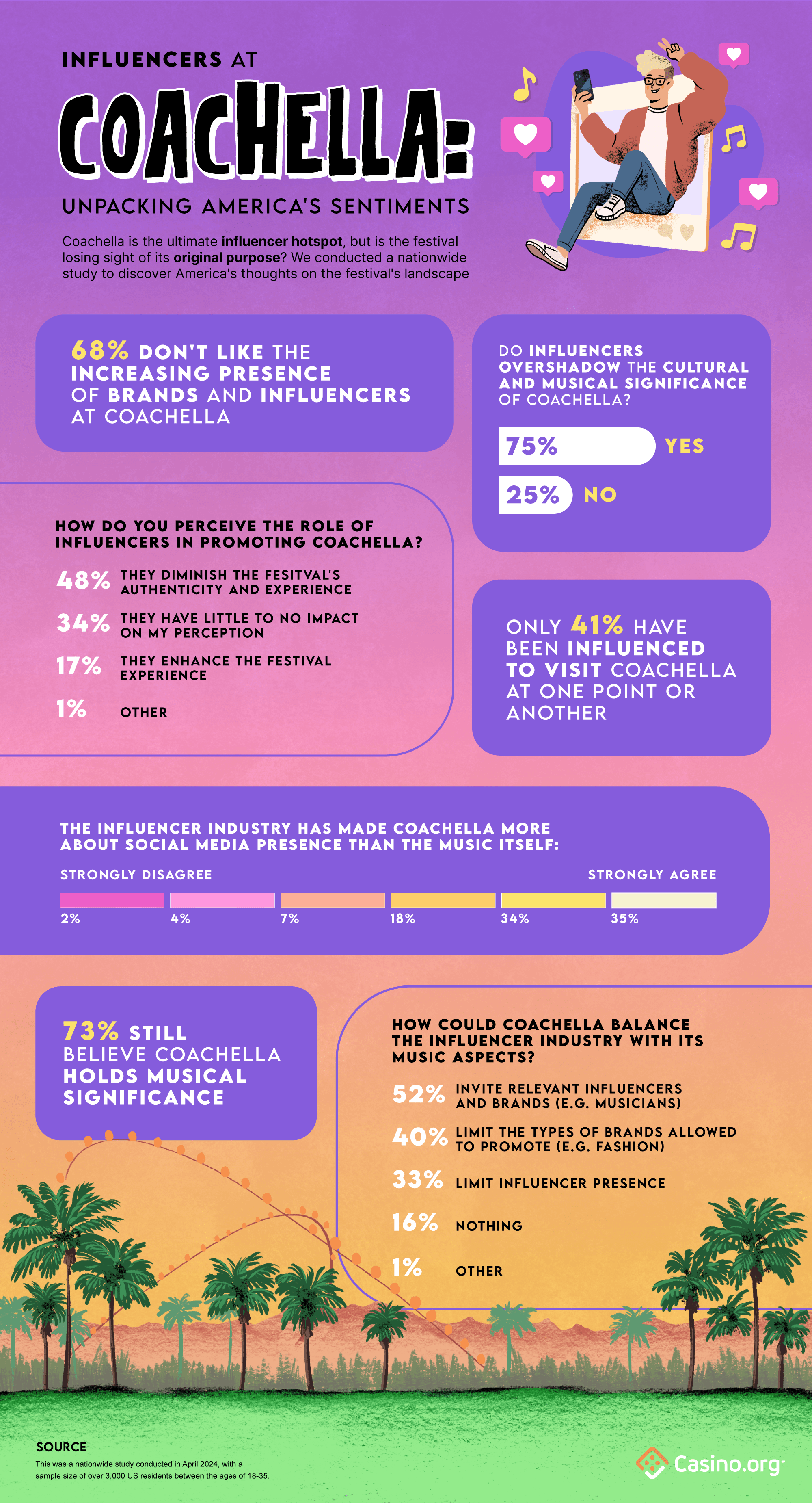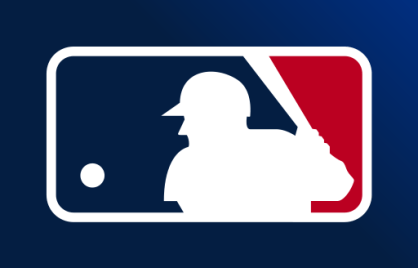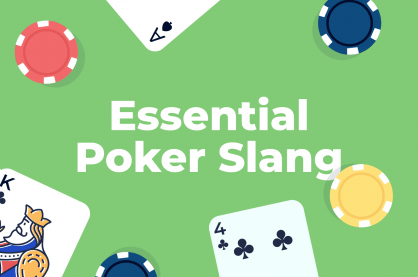Influencers at Coachella: America’s Take on Influencer Invasion
Coachella is renowned for its top-tier musical lineups and trend-setting fashion statements. From iconic headliners like Lana del Rey or Billie Eilish, to Vanessa Hudgen’s influential boho style, it’s the hotspot for music lovers, influencers, and celebrities alike.
However, the festival’s evolution has now turned into an “Influencer Olympics” or “Influencer’s Met Gala” as some like to say – leaving many concerned and irked about the increasing presence of gurus and brands. Is Coachella still a music and arts festival or an influencer publicity playground? To find out, we conducted a nationwide survey to uncover America’s sentiments on the annual festival.
Key Findings:
- 75% agree that influencers overshadow the primary purpose of Coachella
- 68% don’t like the increasing presence of brands and influencers
- Almost half (48%) believe influencers diminish the festival’s authenticity and experience
- 52% believe Coachella should only allow relevant influencers and brands
Coachella x Influencers: Concerns, perceptions, and rankings
Coachella is the event for brand placements – so much so that brands like Revolve, for example, earn 70% of their sales from influencers. With hundreds of Revolve influencers flocking to the event, the potential for a massive profit boost seems undeniable. But how do regular festival goers and the rest of America feel about the influx of gurus and brands?

A whopping 75% agree that influencers overshadow the cultural musical significance of Coachella. Although some respondents commented they understand that ‘business is business’, 68% express discontent with the growing presence of brands and influencers at the event. More headbanging, less posing people!
When asked “how do you perceive the role of influencers in promoting Coachella?”, 48% voiced concerns that they diminish the festival’s authenticity and overall experience. Only 34% feel they have little impact on their experience, while 17% believe they enhance the overall atmosphere. Only 1% commented ‘other’, expressing it depends on the type of creator.
When requested to rank the statement “the influencer industry has made Coachella more about social media presence than the music itself” on a scale of 0 (strongly disagree) to 5 (strongly agree), the average response sat at 3.8. A staggering 86% of respondents echoed in agreement with the statement, highlighting the perception shift. Only 14% seemed to jam to a different beat, disagreeing with the notion.
Suggested next steps for Coachella, according to respondents
With most respondents expressing dissatisfaction about social media influencers at the festival, the question arises: how can this be solved? We opened the floor to our respondents with the following question: “How could Coachella balance the influencer industry with its music aspects?”
The top recommendation, with 52% of votes, is to exclusively invite relevant influencers and brands. Whether that be influencers within the music and arts industry or brands like Apple Music and Sony, it seems like a no brainer to us!
The 2nd most popular suggestion is to limit the types of brands permitted to promote at Coachella, as said by 40%. This could look like imposing a limit on the presence of non-relevant brands (e.g. beauty or banking), while prioritizing more pertinent brands. Meanwhile, the 3rd highest-ranking recommendation, chosen by 33% of respondents, is to cap the number of influencers allowed to attend.
Only 16% indicated that no action is necessary, with a mere 1% selecting ‘other’, offering various reasons. Suggestions included: ‘requiring influencers to post a certain amount of music content’, ‘carefully curate guest lists based on PR and exclusivity’, and ‘limit phone use’.
All in all, Coachella’s musical significance endures
Despite the majority of sentiments leaning towards concerned, a notable 73% still believe that Coachella holds musical significance, amidst the influx of influencers and brand presence. Another 41% also admit to feeling influenced to attend the festival at some point, as well. This promising outlook suggests that Coachella’s evolving landscape will still attract thousands of attendees, regardless of opinions.
Methodology
In April 2024, we conducted a nationwide survey of 3,000 US residents. The age bracket was set between the ages of 18-35 years old, due to the average age of Coachella festival-goers being 25. The average age of respondents was 28.3 years old. The representative sample comprised of 56.8% female, 40% male, 2.4% non-binary, 0.7% transgender, and 0.1% other.
Fair use
Feel free to use the data or visuals on this page for non-commercial purposes. Please be sure to include proper attribution linking back to this page to give credit to the authors.
For any press questions, please contact rhiannon.odonohoe[at]casino.org


